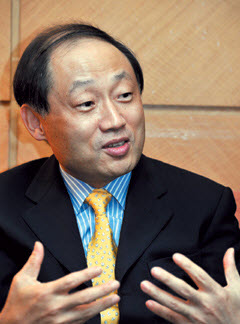
Professor SHIN Hi Taek, SNU’s School of Law
Professor SHIN Hi Taek of SNU’s School of Law spoke on the subject of investor-state dispute (ISD) settlement mechanisms, the currently controversial political issue surrounding the free trade agreement (FTA) between South Korea and the US at HanKyung Millennium Forum. Professor Shin is an ICSID arbitrator and lectures on ISD at SNU Law School.
Shin said that foreign investors who plan to run their businesses in Korea would hardly dare to invoke ISD arbitrations since they will worry about Korean consumers launching a boycott. He also explained ISD in detail as below.
Q. You were one of the joint heads of the ISD taskforce during the Roh Administration in 2006. What was the conclusion then?
“Like now, some people at that time also argued that including ISD in the FTA is dangerous. So former President Roh ordered a thorough and objective review. As a result, a taskforce comprised of experts in both private and public areas was created. Around 20 experts including government officers, professors, and lawyers got together to discuss this issue for 3 months. The conclusion was that, although there are areas of concern, it would be better to include ISD provisions in the FTA while carefully negotiating articles relating to investor protection, since Korea’s foreign investment is rising dramatically and many previous investment agreements Korea has signed already include ISD provisions.”
Q. Some people maintain that ISD will infringe on our sovereignty. What do you think?
“According to international law, when foreign investors and the state in which the investment took place have disputes, the home country of the foreign investor can intervene by invoking the diplomatic right to protect. Since foreign investors can pursue arbitration against a state with which they have ISD, it may be a means to prevent the intervention of foreign governments. For example, if we had an agreement on ISD in the economic cooperation between South and North Korea, South Korean firms could more safely invest in Mt. Geumgang tourism and the Kaesong industrial complex. But since we do not have any objective procedure like ISD to resolve conflicts, the government intervenes every time conflicts arise and then they become political problems.”
Q. What are the differences between the agreements on ISD and existing ones such as the WTO agreement?
“If a public policy breaches the WTO agreement, then we must change that policy. In this regard, ISD settlement mechanisms entail less sovereignty infringement than the WTO since they are only invoked when investors’ wealth has been taken without any justifiable compensation in a violation of the investment agreement. The city of Seoul raised the issue with so-called super supermarkets (SSMs), but this problem is already susceptible to WTO lawsuits.”
Q. The Democratic Party says that they will not block the ratification of the FTA if Presidents LEE Myung Bak and Barack Obama promise to renegotiate ISD issues.
“I think it is unlikely that they will renegotiate. If the US asks why we allow the protection of British, Dutch, Swiss, and Japanese investors by agreements regarding ISD, but not US investors, how can we persuade them to accept anything less? Also, even if we eliminate ISD provisions from the FTA, the practical benefit will not be large.”
Q. Why are there many ISD arbitrations in Latin American countries?
“Many Latin American nations had unstable political situations, and seized the assets of foreign investors. This made investors unwilling to enter these markets. To induce these investors, the central and local governments there made promises that they cannot abide by.”
Q. How likely do you think it is that the Korean government will be sued? And what are the disadvantages of being sued?
“If the Korean government maintains the consistency and rationality of its policies there would not be much of a problem. A public policy, however good the intention might be, which is too radical or is in violation of proportionality, can be declared unconstitutional or unlawful by the Constitutional Court of Korea or the Administrative Court.”
Written by PARK Ziho, SNU English Editor, snuitsm2@snu.ac.kr ?
Proofread by Brett Johnson, SNU English Editor, morningcalm2@gmail.com

